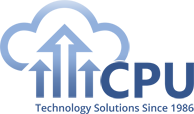One of the biggest computer related issues of the past year has been security. There have been a number of high profile security breaches and malware attacks that have had users and companies wondering just how safe their data is online. Usually, Mac users have been able to scoff at the fact that their systems are safe. Events during the summer however, showed that Macs may not be as secure as users think.
While Apple’s OS, OS X, has never been ‘free’ from viruses and other malware, past infections pretty much had to be purposefully introduced into the computers. This past summer changed that perception with a number of events that brought the security of Apple’s platform into question.
Should we worry?
If you use OS X in your company, or even at home, security should be among the issues that are at the top of your mind. While many of the recent malware attacks geared towards OS X users weren’t massive – roughly 600,000 Macs were infected by the Flashback attack in April – it’s the sophistication of these recent attacks that has security experts alarmed.
Traditional malware was usually created to do one thing, be it crashing a computer or stealing information. Many of these new attacks have multiple aims, such as install backdoors, keyloggers and rootkits to hide all of the above from the user. This then allows the criminal access to your system whenever they want, and the ability to track every keystroke made, which in turn means they could steal your information. Apply this at the company level and you could have a serious issue that could be nearly impossible to recover from.
Is there anything we can do?
As with nearly any problem, potential or otherwise, there is always something you can do. One of the first things you should do is to establish an ‘Allowed Programs’ list with programs that employees are allowed to download. If it’s not on the list, it shouldn’t be downloaded.
If you work with a Managed Service Provider (MSP), it’s best to not let your employees install updates by themselves, instead contact the Provider to get them to do a system-wide update. That way, you can be sure that the update is vetted and that every user can benefit from it.
Many Mac users don’t take basic security steps like installing a virus scanner, keeping it updated and running regular scans. You should have, at the very least, virus scanners installed on all systems. Popular name brands like Norton and Kaspersky are available for Macs.
For an easy solution, you could work with an MSP who looks after your systems for you. This serves two purposes, the first being that you don’t have to worry about the security of your systems and the second being that if there is a problem, your MSP will know how to fix it.
If you’re worried about the security of your OS X systems, please contact us, we may have a solution that meets your needs.
Published with permission from TechAdvisory.org. Source.
Published on 24th October 2012 by Jeanne DeWitt.


